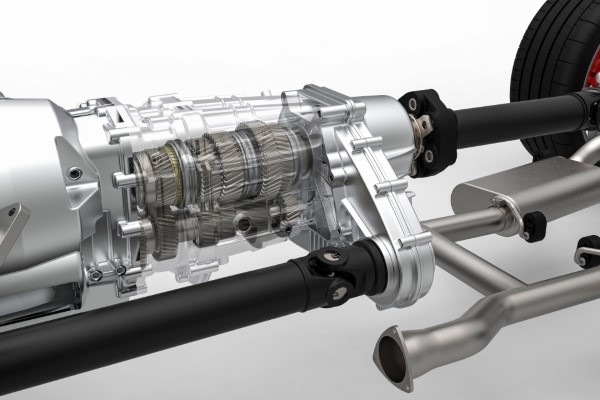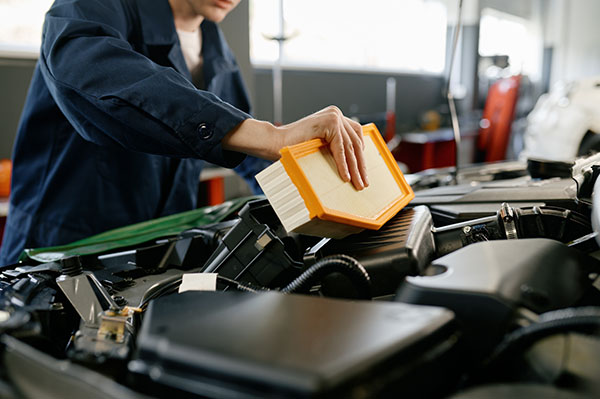Posted on 1/27/2024

Ever wonder what's behind the smooth acceleration of your car as you press the pedal? It's all about the gears in your vehicle's transmission. This intricate mechanism is the reason behind your seamless and efficient daily commutes and road trips. What Is A Transmission A transmission is a complex mechanical system in a vehicle that transmits power from the engine to the drive axle, effectively controlling the speed and torque. Think of it as the mediator between your engine and the wheels, ensuring that the right amount of power is delivered to move the car forward at various speeds. This system can be manual, where you shift gears yourself, or automatic, where the car decides the best gear for the driving conditions. Why Are Gears Used In Transmissions Gears are the heart of any transmission system. Their primary role is to manage engin ... read more
Posted on 12/22/2023
.jpeg)
Are you a proud owner of an SUV? If yes, then you must know how important it is to keep your vehicle in top condition. Frequent maintenance not only extends the longevity of your SUV but also enhances your driving experience, but if you want to learn how to do it exactly, continue reading! Tire Care Wisdom Your SUV's connection with the road begins with its tires. Check tire pressure, rotate them as recommended, and ensure proper wheel alignment. It's not just about longevity; well-maintained tires contribute to a smoother ride, better fuel efficiency, and enhanced safety on diverse terrains. Fluids, Fluids, Fluids! Frequently check and change engine oil, transmission fluid, brake fluid, and coolant. Proper fluid levels and quality ensure your SUV operates at peak performance, preventing overheating, and preserving the engine's longevity. ... read more
Posted on 11/30/2023

As the holiday season approaches, the roads transform into a bustling web of twinkling lights, festive decorations, and the joyful hum of travelers embarking on seasonal journeys. Amid the cheer, it's crucial to prioritize safety, ensuring that your holiday drive is not only merry but also secure. But how can you achieve this? 1. Plan Ahead for Travel Peaks The holidays often bring peak travel times, with highways resembling festive ribbons of headlights. To avoid unnecessary stress, plan your travel dates and times strategically. Consider traveling during off-peak hours or even on the day of the holiday itself to encounter lighter traffic and a smoother journey. 2. Ensure Vehicle Readiness Before hitting the road, ensure that your vehicle is holiday-ready. Check the tire pressure, oil levels, brake fluid, and all essential fluids. If you're embarking on a long journey, consider a pre-trip inspection to identify and address any potential is ... read more
Posted on 10/30/2023

Embarking on rugged terrains and conquering challenging landscapes is where the Toyota Tacoma truly comes alive, embodying the spirit of adventure and resilience. As your trusted companion for off-road escapades and everyday journeys alike, your Toyota Tacoma deserves the utmost care and attention to ensure its enduring performance and reliability. By embracing a proactive approach to maintenance, you not only safeguard the longevity of your beloved Tacoma but also ensure that every drive remains a seamless and exhilarating ode to exploration and durability. Regular Fluid Checks Monitoring and maintaining the levels of essential fluids such as engine oil, transmission fluid, coolant, and brake fluid are crucial for the optimal performance and longevity of your Toyota Tacoma. Fluid checks and timely replacements contribute to the smooth operation of your vehicle, ensurin ... read more
Posted on 9/30/2023

You're at the crossroads of choosing your dream truck, and you're faced with a pivotal decision – 4x4 or 4x2? The world of trucks offers both options, each with its unique set of perks and capabilities. It's not just about the destination; it's about the journey too. Fortunately we are bringing you this article to help you decide which one best aligns with your adventure-ready spirit and everyday driving needs. 4x4 Trucks: Unleash the Off-Road Beast Off-Road Dominance: 4x4 trucks are designed for rough terrains, offering superior traction and control on mud, snow, rocky trails, and more. All-Wheel Drive: With the ability to power all four wheels simultaneously, 4x4 trucks can navigate challenging conditions with ease. Versatility: Whether you're an off-road enthusiast or facing tough weather conditions, a 4x4 truck can handle it all. 4x2 Trucks: Practicality Meets Efficiency Everyday Convenience: 4x2 trucks are perfect for daily commuting and tasks l ... read more